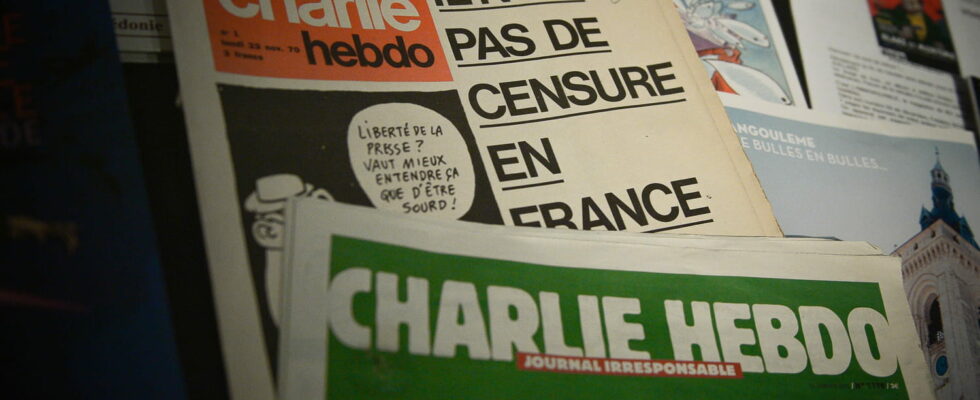Charlie Hebdo is releasing a special issue, 10 years after the attack on the newspaper. In these pages, a survey reveals the evolution of French opinion on press caricatures.
Charlie Hebdo was founded in 1970 and has always left a large place for illustrations and particularly political caricatures. Opinions have always differed on their publication. Ten years after the January 2015 attack, where are the French people’s opinions on these caricatures? The Jean-Jaurès Foundation has carried out with Ifop and in partnership with Charlie Hebdo, which publishes it in its special issue of this Tuesday, January 7, a large investigation with a representative sample of 1000 French people on the evolution of public opinion over the last fifteen years.
This study first shows increasing support for the right to caricature and blasphemy in France. In 2024, more than three quarters of those surveyed (76%) believe that freedom of expression and caricature is a “fundamental right”. They were only 58% in 2012. Conversely, 24% believe that we cannot say or caricature anything in the name of freedom of expression. It is only among Muslims that this share is in the majority, with 55%.
Among the themes on which the majority of French people believe that humor can be used are death (56%), the nationality of people (55%), Christianity (52%), sexual behavior (51% ) or even homosexuality (51%). These figures have increased significantly in recent years: in 2020, 50% declared themselves in favor of expressing criticism and mockery against religions compared to 62% in 2024.
Young people and believers more resistant to caricatures
The acceptability of polemical humor appears more limited among women, with only 48% accepting humor about death and 42% about sexual behavior, for example, while the proportion of men rises to 64% and 61%. % on these two subjects. This is also the case among believers who are notably less likely to be in favor of humor about homosexuality (36%), ethnic origin (37%) or even death (41%).
More surprising: disparities clearly appear between generations. A third (32%) of young people under 35 support the idea that we cannot “say and caricature anything” under the guise of freedom of expression, compared to only 21% of those aged 35-64 and 65 years and over. Young people under 35 are also in the minority to support humor about nationality (48%) and homosexuality (44%).
Note that only 47% of people saying they are close to France Insoumise say they are in favor of the right to blasphemy compared to 62% of French people on average. He In this survey, this is the only electorate where support for blasphemy is in the minority. Here again, the trend may be surprising, as the left traditionally carries a demanding message about freedom of the press and offense against morality and established orders.
Charlie Hebdo still receives the support of a majority of French people: 59% declared having read articles or press cartoons from the newspaper over the last twelve months. 69% also say they enjoy reading press cartoons. However, supporters of the far right do not follow this movement. 37% say they do not like reading press cartoons and only 48% have read Charlie Hebdo over the last twelve months.
“This resistance, although in the minority for the moment, illustrates the persistent challenges in building a societal consensus around these fundamental freedoms, and the battles that will have to be waged over the coming decades,” concludes the study.
